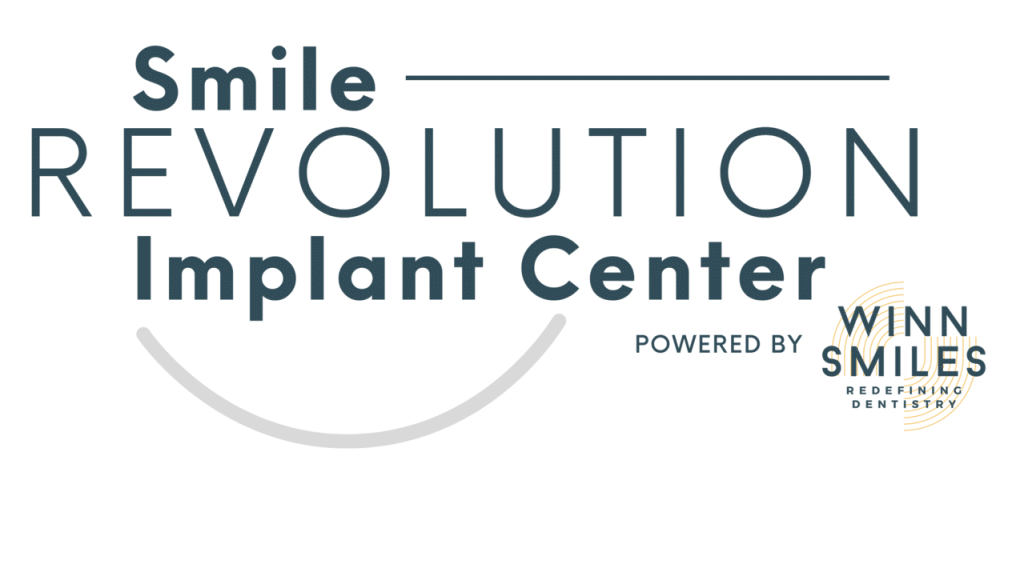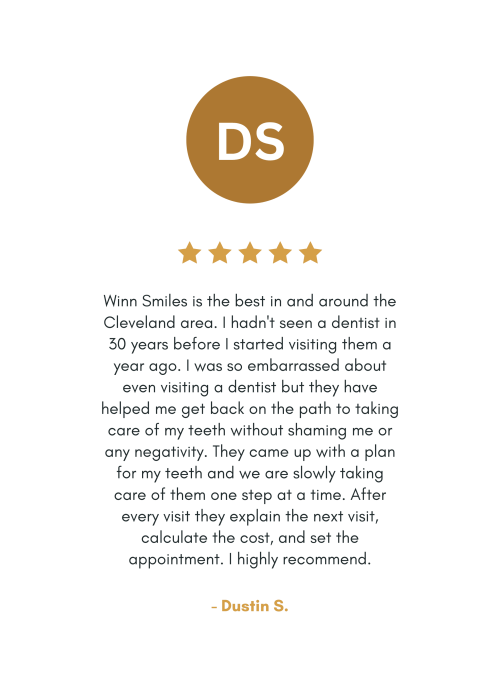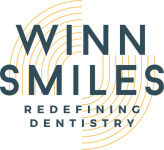Patient Newsletter:
August Edition
Transforming Smiles: Full-Arch Restoration
At Winn Smiles, we believe in the power of a smile. We believe that everyone should be able to smile and feel 100% confident in doing so. To give everyone the opportunity to have the smile of their dreams, we’ve ventured into a new field: Full-Arch Restoration, under a new banner, Smiles Revolution.
Full-Arch Restoration is a cutting-edge procedure that redefines the possibilities of smile restoration. It targets the complete upper or lower arch of teeth using dental implants, replacing existing teeth with a permanent replacement that both looks and feels like your human teeth.
The benefits aren’t just for people with misaligned or missing teeth either. Full-Arch Restoration is an extremely popular for those with dentures, effectively replacing them with teeth almost identical to your human teeth in both look and function. Full-arch implants also restore all the functionality you may have missed from your natural teeth, like eating hard foods, steak, etc – foods you can’t eat with dentures.
Tinamarie was one such patient. She had previously worn dentures, but was unsatisfied with her quality of life, and wanted something closer to her real teeth. Check out her amazing testimony of her experience with Full-Arch Restoration and how it’s given her the smile she’s dreamed of!
For more information on how you can transform your smile today, call 423-203-1114 or visit https://www.smilerevolutiondentalimplants.com/ for more information.

“Full-Arch Restoration is an extremely popular for those with dentures, effectively replacing them with teeth almost identical to your human teeth in both look and function.”






















Coming Soon: Smiles From The Heart
We’re excited to announce that we’re bringing the free clinic day back under a new banner, Smiles from The Heart. On September 15th, we will be giving a way a FREE extraction, filling, or cleaning, at our Cleveland location, from 7AM to 5PM. Check out our announcement video below for more information!
Pet of the Month: Aphrodite
At Winn Smiles, we’re all about creating smiles and bringing joy to people. One of the things that brings us the most joy is our pets! There’s just something about a friendly face and wagging tail that just makes you want to smile.
We are a proud partner of McKamey, an animal shelter that serves the Greater Chattanooga area. Every month, we sponsor a surprise adoption, providing a derserving dogs with an extra opportunity to find a good home. For more info on McKamey, visit https://mckameyanimalcenter.org.
More on Aphrodite
“Aphrodite was adopted from MAC yesterday and was smiling from ear to ear, walking out of here with her new mom! When this sweet girl came to MAC back in July, it was clear to us that she had been through some tough times.
She came to us extremely fearful, covered in mats, and in need of some dental work. But, once her mats were groomed out and her teeth were fixed, it was obvious she felt SO much better and blossomed into the beautiful girl you see here!
Because of this, we simply couldn’t think of a more fitting recipient for the surprise Winn Smiles-sponsored adoption! Not only was her adoption fee waived, but she got to go home with a basket full of goodies, too!
So please join us in giving a huge thank you to Winn Smiles and wishing these two a Happy Gotcha Day!” – McKamey Animel Center

September's Referral Giveaway: iPad Mini!
For next month’s referral contest, we’re doing something special. We are giving away an iPad at each location to the patient with the most referrals! With 128GB of space, this iPad is perfect for all your entertainment needs!
Here’s what you need to do:
- Refer a friend (20 points)
- Leave us a review (5 points)
The results for the contest will be announced October 30th. Good luck!!


We Love Hearing
From Our Patients.
Reviews help us improve as a dentistry, and help us find other future Winn Smiles patients. Have you had a great experience with a favorite provider, or an employee? Leave us a review and refer us to your friends. We would love to take care of them as well!
To leave a review, click on the link below or scan the QR code.

